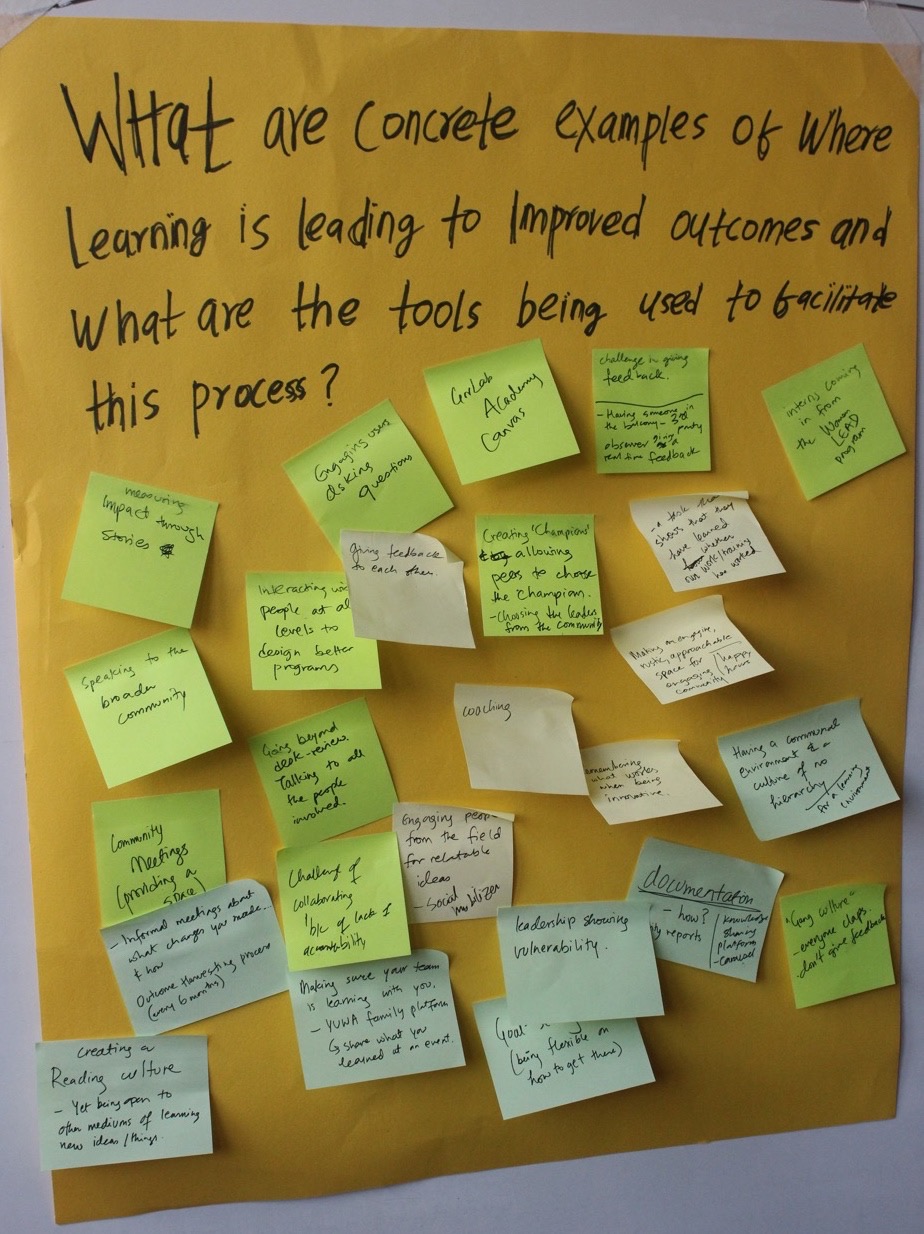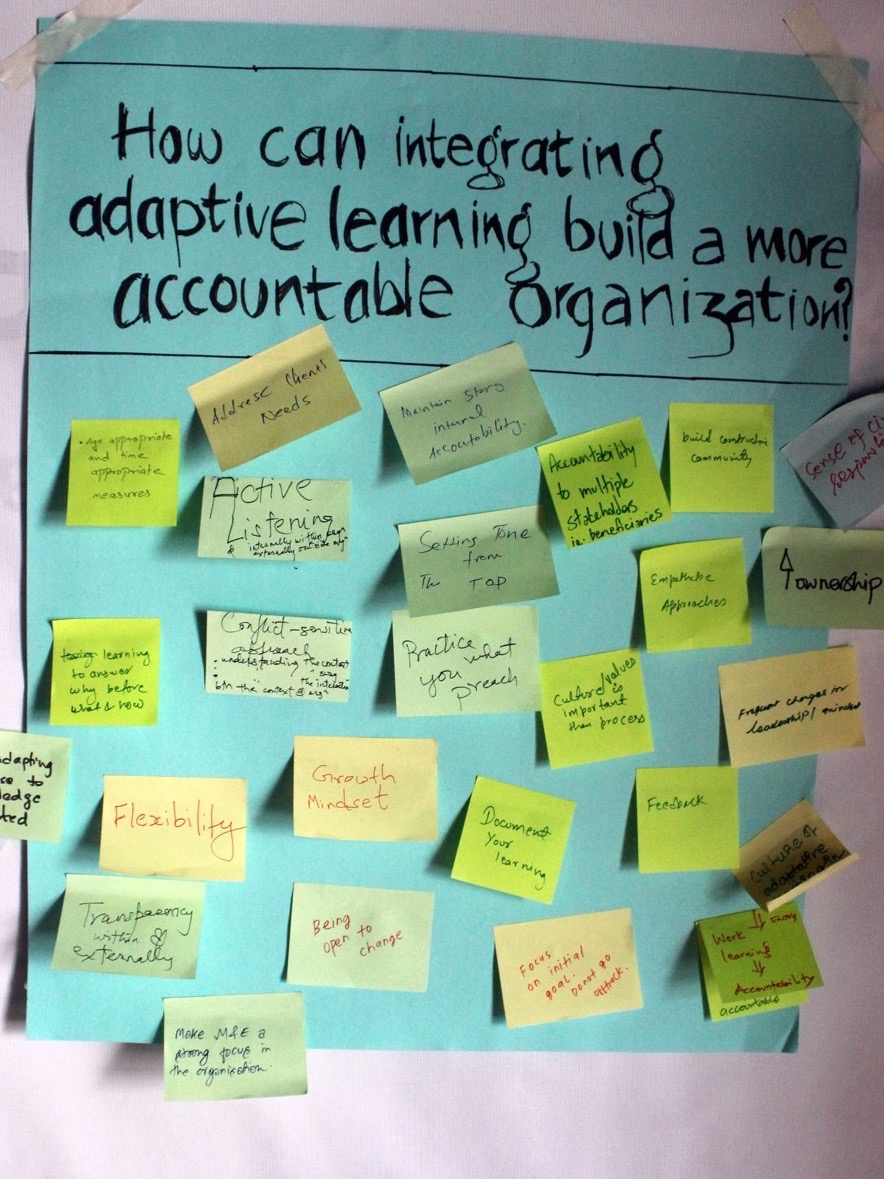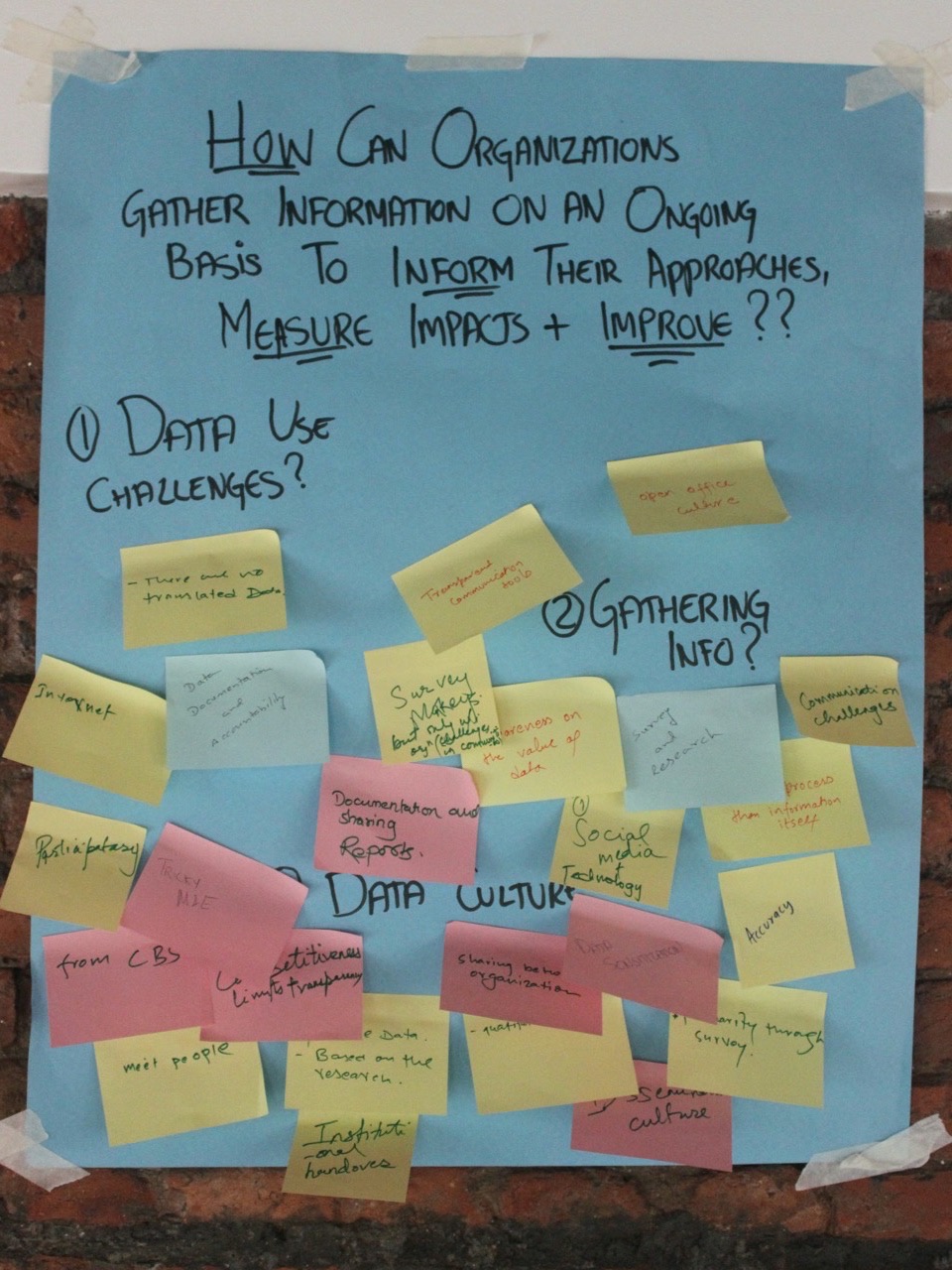NEWS
September 30, 2016

IN BRIEF
By: Samita Thapa, Accountability Lab Resident in Nepal At Accountability Lab, learning is an important part of our work; we see our role as trying new approaches, testing new ideas and then sharing the learning from those efforts with the larger development community both in Nepal and beyond. Last month, we held a Learning Event at the OpenGov Hub Kathmandu to see how others were thinking about learning too and collectively share ideas about how we can all improve what we do. In Nepal, learning tends to refer to a theatre-style, one-way communication through which one party teaches and the […]
SHARE
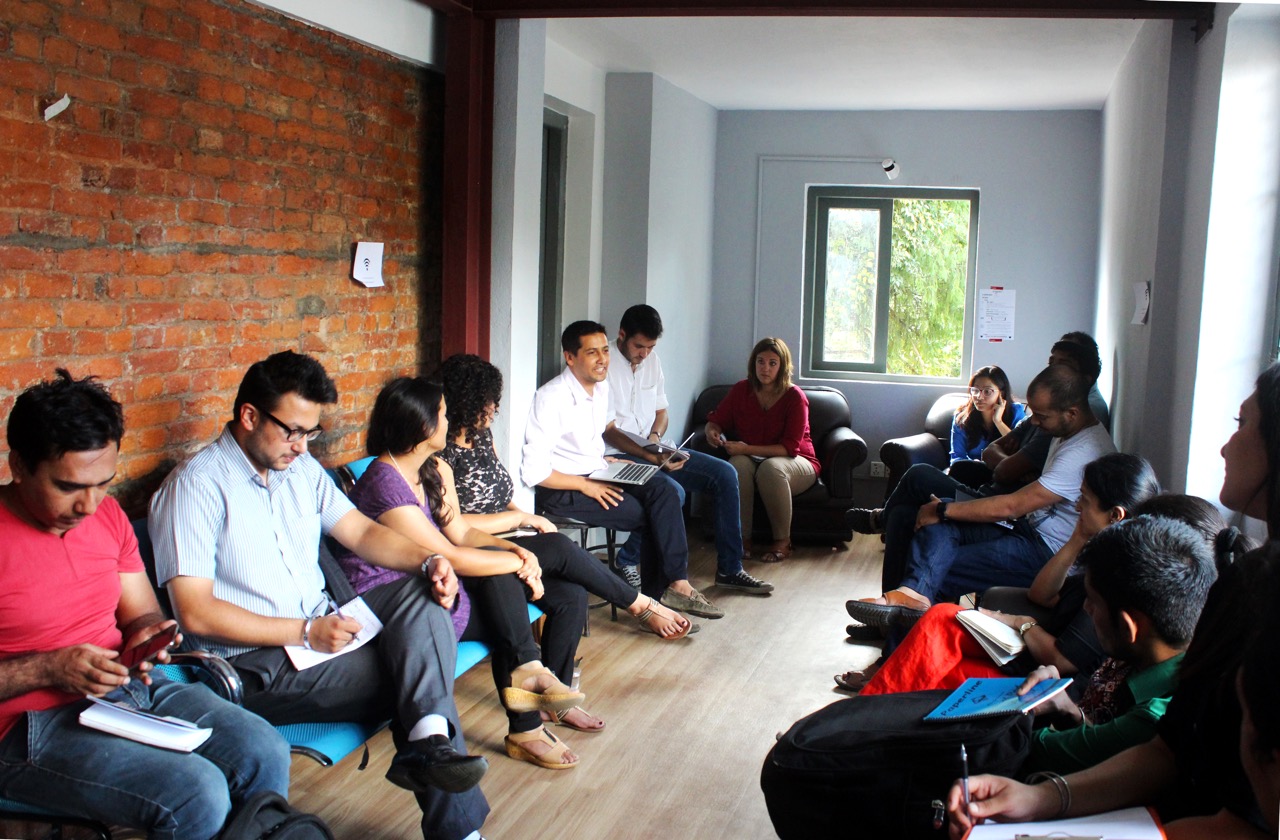 By: Samita Thapa, Accountability Lab Resident in Nepal
By: Samita Thapa, Accountability Lab Resident in Nepal
At Accountability Lab, learning is an important part of our work; we see our role as trying new approaches, testing new ideas and then sharing the learning from those efforts with the larger development community both in Nepal and beyond. Last month, we held a Learning Event at the OpenGov Hub Kathmandu to see how others were thinking about learning too and collectively share ideas about how we can all improve what we do.
In Nepal, learning tends to refer to a theatre-style, one-way communication through which one party teaches and the other learns. It is old-school, direct, and mostly ineffective. We wanted to initiate a conversation about a different kind of learning that is interactive, dynamic and more meaningful. We invited organizations at a similar stage of growth, like Local Interventions Group (LIG), Karkhana, Teach for Nepal, and others. As young organizations we are often caught-up in the implementation of ideas and rarely have the opportunity to step back and reflect on what is working, what is not, and how we can adapt. It was a fantastic afternoon of conversation, with a number of important themes:
i) Create Learning Opportunities
We are constantly learning, as individuals and as organizations. But it is important to take the time to understand what we are “learning about learning”. Attending events is one way of learning, but not everyone in an organization can attend every event. To ensure organization-wide learning, establishing and agreeing upon a system to share learning sounds simple but is often overlooked. At Accountability Lab we are trying to get into the habit of getting together regularly to hear about everyone’s field visit experiences as a way to share lessons learned, success stories, and personal reflections. YUWA (a Nepali non-profit working on youth empowerment), uses an online platform to post their learnings from events so that everyone at the organization can learn from those events. And while learning about what works is important- especially for young organizations like ours- it is equally (if not more) important to unlearn the things that don’t work. There are plenty of ways to do this sort of thing, but it is up to the leadership of an organization to set the tone and make this a core part of the organization’s culture. This means the leadership itself needs to “show up” and prioritize learning opportunities whenever they can.
ii) “Why” Before “How”
The race to be ‘innovative’ when working for social change sometimes blinds us from really thinking through the problems we are trying to solve. We get so busy thinking about solutions and project details that we forget to take time to analyze the problem and see if existing solutions work. We call this the tyranny of “problem-solving” rather than “problem-setting”. There are a number of organizations that have developed useful techniques to overcome this issue. The GovLab Academy trains public entrepreneurs, beginning with the GovLab Academy Canvas to help participants write and rewrite their problem statements multiple times before they get anywhere close to developing solutions.
At the Accountability Lab, we work carefully with our “accountapreneurs” to understand motivations and perspectives at the very beginning of their work. Often this can change ideas entirely to address problems in very different ways. Anita Thapa, who runs a civic education program, for example, began largely through classroom based approaches, but soon moved towards interactive, practical projects with students that help them learn and solve challenges in their communities. This has led to real results – a group of students from Sudesha High School in Kathmandu, for example, recently chased authorities to construct a road outside their school that had been promised but not started. As a result of their campaign, the road is now half-finished and they are pushing for the completion of the work- learning about their role as active citizens in the process.
iii) Learning is About Collaboration
Working in silos tends to lead to unnecessary competition and duplication of efforts, leading to wasted resources and time. Collaboration is key to addressing any kind of social problem, so it is important that we all create an environment that encourages collective outcomes. Our mantra is: “the best thing you can do with information is give it away”: knowledge is not something to hide or protect. Fortunately, this view is slowly gaining traction in Nepal. For example, co-working and collaborative spaces are on the rise. Nepal Communitere is one of these collaborative spaces where Nepali makers and designers can find a community with others. The OpenGov Hub Kathmandu that we founded also brings together organizations and individuals working on transparency and open government issues in one space and we’ve seen some great collaborations emerging – like our Citizen Helpdesks.
iv) Individual Versus Organizational Learning
Documentation, documentation, documentation. We talked a lot at the event about the need for our organizations to document learning better. As young organizations, we are constantly trying new things and are busy executing multiple new ideas at once – and in the rush, we tend to forget to document all that we are doing. Without documentation, not only are we are unable to replicate successful programs and avoid the same mistakes that posed challenges in the past, but we are also unable to track the impact of our programs. Lacking structured systems for documenting and disseminating information, we rely on our memory to help us recall things, and when staff, volunteers, and interns move on from our organizations, we lose the information with them. So individual learning can actually become the enemy of organizational learning. At the Lab, internally we now use tools like Asana to document and track progress, and Evernote to share ideas. Externally, we are using learning videos to share ideas and we host quarterly impact calls to discuss what we are learning with the broader community. Do you have other ways you transform individual into organizational learning?
v) Open Mind, Open Learning
Receiving positive feedback in Nepal is easy but receiving constructive and honest (sometimes negative) feedback is- as in many other places- quite difficult. Working in the social sector, we tend to surround ourselves with like-minded people and organizations doing similar work, resulting in an echo-chamber through which we “clap and praise rather than giving honest feedback” as one participant put it. Adaptive learning means being open to understanding what does not work, where and why; and how we can build emergent solutions in response. The founder of Women LEAD (a professional development and leadership organization for women), expressed that it isn’t easy to get constructive feedback from participating girls at the end of their program. But some of these participants then join the team and provide extensive ideas on how the program can evolve. We discussed ideas around third party observations of all trainings and workshops, to ensure some more objective analysis and learning. We’ve also now trained hundreds of volunteers to use KoBoToolbox,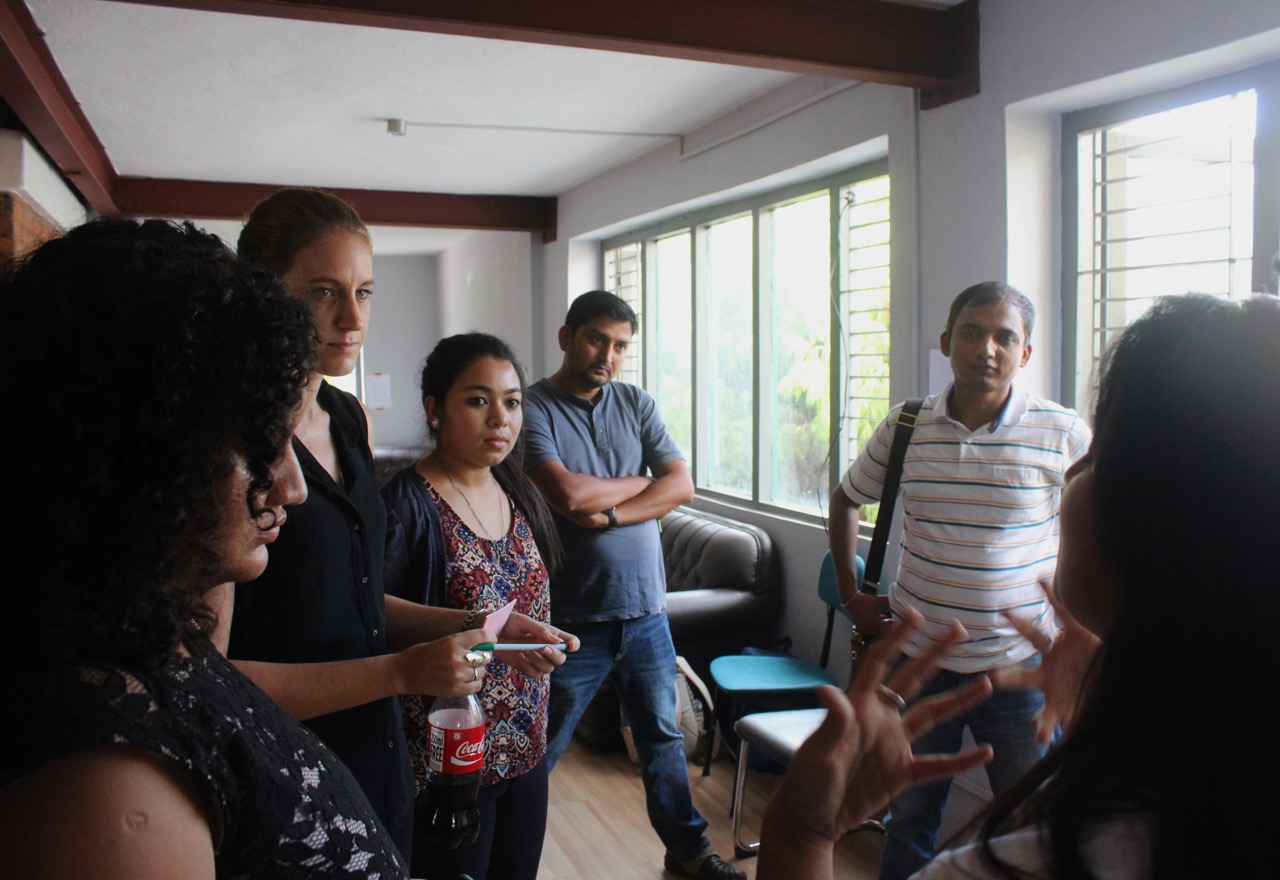 and collect data at every opportunity to allow us to course correct as much as we can in real-time.
and collect data at every opportunity to allow us to course correct as much as we can in real-time.
Learning is a long road and it isn’t easy- practically and emotionally- because changing approaches can be hard. But we’re committed to it from the top-down and that matters. Over time, we know it will improve our work as an organization and the outcomes we are able to create for our communities.

